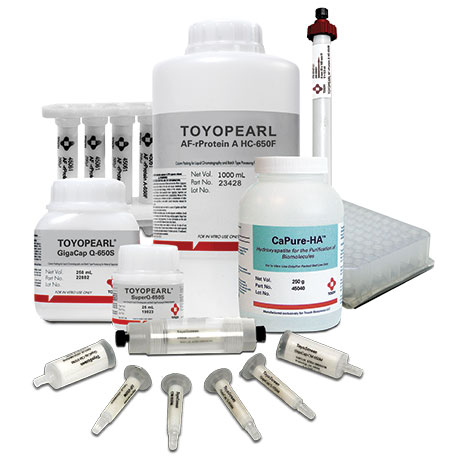Process Chromatography
Chromatography is a common purification step in industrial downstream processing (DSP) of biological targets. A typical DSP scheme combines two or more chromatographic separation steps with ultra- and diafiltration unit operations to achieve the desired purity for the target. Due to their non-denaturing character, Ion Exchange, Mixed Mode, Hydrophobic Interaction, Affinity, and Size Exclusion Chromatography are the common modes applied in biopurification.

TOYOPEARL® and TSKgel® Process Media
TSKgel® and TOYOPEARL® resins are specifically designed for use in biopharmaceutical production. Based on a rigid methacrylic polymer structure, they show excellent physical strength and flow characteristics, resulting in faster process throughput. Optimized pore diameters and narrow particle size distribution allow rapid kinetics and exceptional resolution.
TOYOPEARL® and TSKgel® resins are applied from capture, through intermediate purification, to polishing. Target molecules range from peptides and proteins to oligonucleotides and plasmids. To support the use of the resins in a regulated environment, “regulatory support files” are available.
In this section, you can locate the resin that is best suited for your application by chromatography mode or process step. Just select from any of the links listed below for a short tutorial on the mode or on the process steps as well as the variety of TOYOPEARL® and TSKgel® resins offered.
